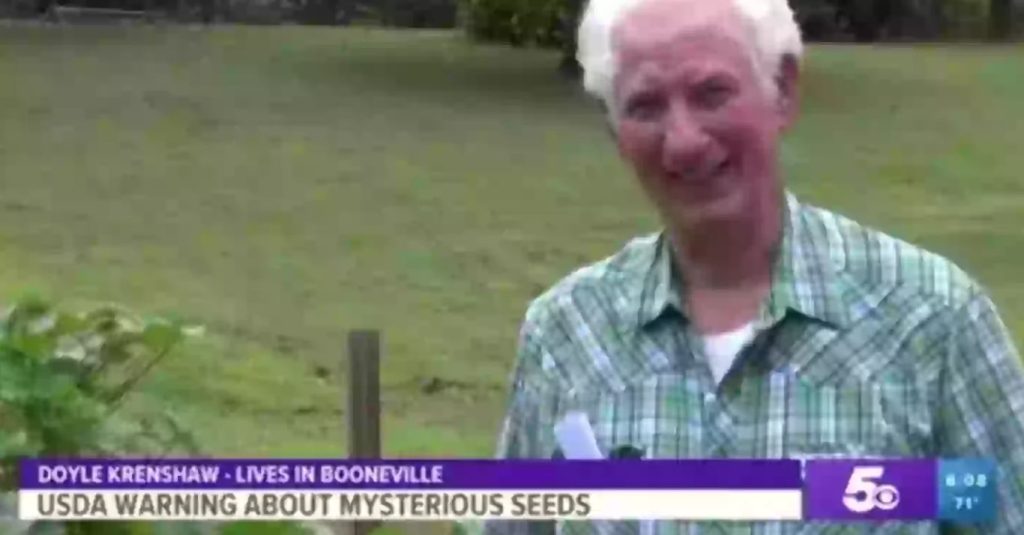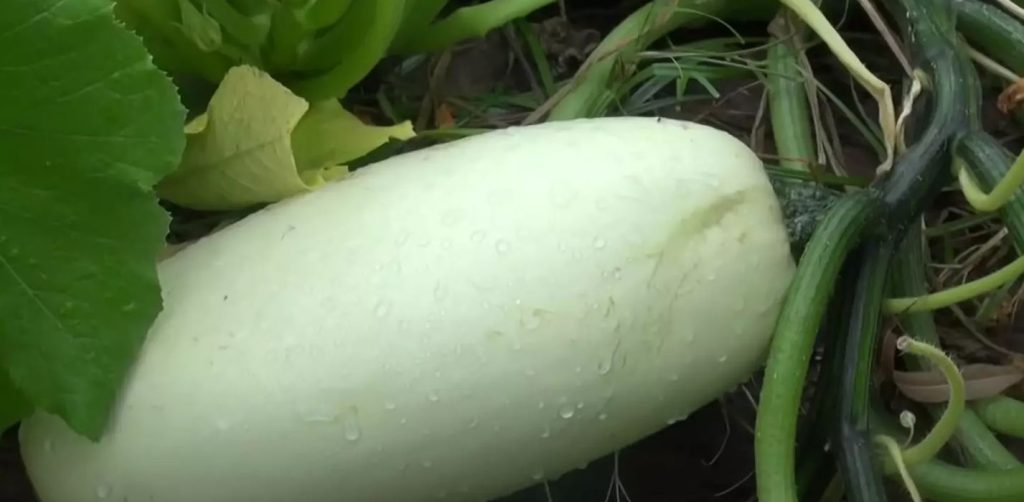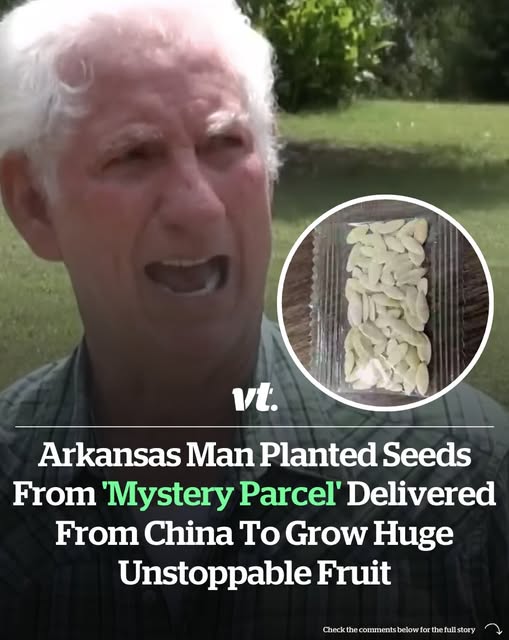In 2020, a man from Booneville, Arkansas received a mysterious parcel arriving from China. The package oddly labeled as containing jewelry actually held a small packet of seeds. Curious, he decided to plant the seeds in his garden, and to his surprise, they grew rapidly into a large plant with white fruit and orange flowers.
Government Concerns Over Invasive Risks
Before the planting occurred, agriculture officials were already warning the public not to sow unsolicited seed packets, warning such acts could introduce invasive species, damaging local ecosystems and agriculture. Scott Bray of the Arkansas Department of Agriculture voiced serious concern that these seeds could carry invasive weeds, plant diseases, or insect pests. Fortunately, in this case, no harmful species were identified—but experts remained cautious.

What Did It Turn Out To Be?
An unofficial government analysis identified the plant as Benincasa hispida, commonly known as wax gourd, winter melon, or Chinese watermelon. Officials removed and incinerated the plant as a safety precaution. Although the Arkansas grower reported the plant was thriving, officials handled it with caution given the uncertainties and potential broader implications.
The “Brushing Scam” Theory
Investigators suspect that the unsolicited seeds were part of a brushing scam—a deceptive e-commerce practice. Sellers send free items to random recipients and then post fake “verified purchase” reviews to raise their credibility on platforms like Amazon. These seeds were often mislabeled (e.g., as jewelry) to bypass customs protocols and appear legitimate, even though recipients never ordered them.
Voices from the Community
On Reddit, concerned individuals highlighted an important point:
“There are procedures and laws around importing seeds and plants and they’re circumventing customs by mislabeling the seeds… this is something that does need to be taken seriously.”
Another user summarized the sentiment:
“Brushing scams involving seed packets in international mail shipments are not uncommon.”
What You Should Do If You Receive Them
Authorities strongly advise that if you receive unsolicited seed packets:
- Do not open or plant them.
- Seal them in a bag and contact your state agriculture department or the USDA APHIS (Animal and Plant Health Inspection Service) for instructions.

Conclusion
What began as a simple curiosity—planting mystery seeds—unveiled a broader issue with potentially serious environmental consequences. While the Arkansas case ended harmlessly with a wax gourd plant, it underscores the importance of vigilance. Whether a harmless brushing scam or something more sinister, the impulse not to plant unidentified seeds remains a vital rule for safeguarding agriculture and ecosystems. This unusual event also sparked important conversations about biosecurity and public awareness. Many people never consider how easily invasive organisms can spread through something as small as a seed. The incident became a teaching moment, reminding communities that global trade and online shopping can sometimes blur safety regulations. Officials stress that even a seemingly harmless plant can alter soil conditions, outcompete native species, or spread diseases to crops. By raising awareness, authorities hope the public will be more cautious. Ultimately, the Arkansas mystery seeds highlight how small actions can have large impacts on environmental and agricultural health worldwide.

















